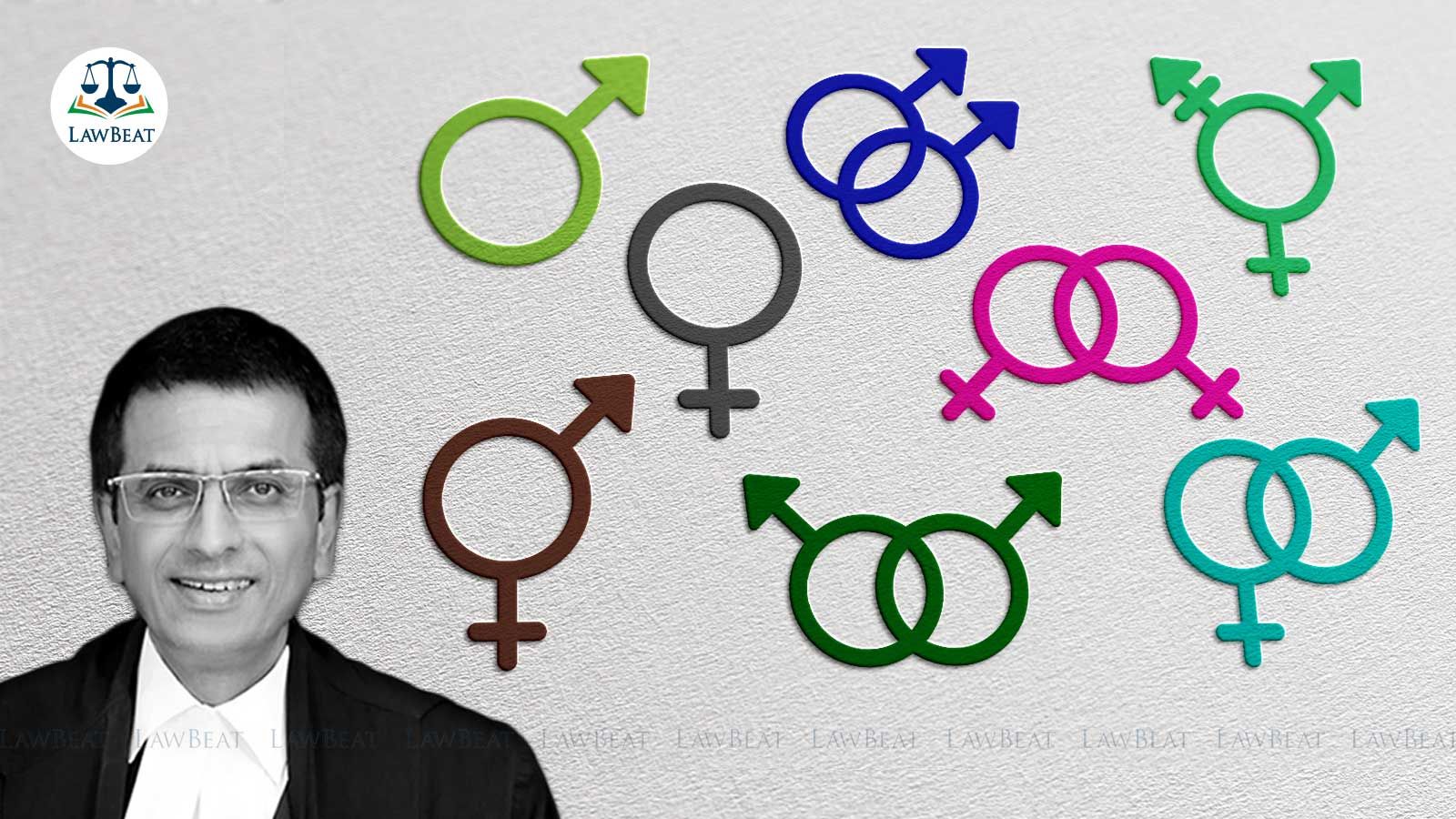Biological male beyond anatomy, CJI DY Chandrachud says

Gender Spectrums about how the concept of man and woman extends beyond biology was discussed in the Supreme Court
The Chief Justice of India, DY Chandrachud (CJI) today reflected on existing gender spectrums during the hearing on same-sex marriage recognition.
The Supreme Court is currently hearing a batch of petitions seeking recognition of marriage between the same-sex on the basis of constitutional principles. During the hearing, the exchange between the CJI and the Solicitor General of India Tushar Mehta (SG) riveted around the existing scope of the institution of marriage in India.
When the Constitution bench, also comprising Justice SK Kaul, Justice S. Ravindra Bhat, Justice Hima Kohli, Justice PS Narasimha pointed out that the Special Marriages Act will be delved into for the time being, the SG pointed that as of now, the concept of marriage existed between a biological male and a biological woman. To this, the CJI said, "There is no absolute notion of a man and it is far more complex than that, it is far beyond what your genitals are".
The SG replied to this and said, "A biological man is a biological man.. also there are separate age limits prescribed". He added that the Centre, however, did share concerns of dignity and discrimination associated with the issue.
At the beginning of the hearing, the court said it will hear the petitioner(s) in order to understand skeletal averments that are to be projected, after the SG pointed out that the Centre's preliminary objection of the issue being part of legislature's domain must be decided first.
"In that case, the government will have to decide whether it will participate in the hearing," he added.
A light hearted exchange ensued following this. The hearing is currently in progress and Senior Advocate Mukul Rohatgi is making lead submissions in the case.
In November last year, the Supreme Court issued a notice in the plea moved by a gay couple seeking legal recognition of same-sex marriage under the Special Marriage Act, of 1954.
Senior Advocate Mukul Rohatgi appearing on behalf of the petitioner-couple had then submitted before a bench comprising CJI Chandrachud and Justice Hima Kohli that the issue was a sequel to Navtej Singh Johar's judgment.
The absence of a legal framework that allows members of the LGBTQ+ community to marry any person of their choice had been raised by the instant plea.
In the plea seeking recognition of same sex marriage, it was submitted that Special Marriage Act is ultra vires the Constitution of India to the extent that it discriminates between same-sex couples as opposed to opposite-sex couples denying same-sex couples both legal rights as well the social recognition and status that flow from marriage.
Case Title: Supriyo@ Supriya Chakraborthy v. Union of India & Anr. (a batch of petitions)
